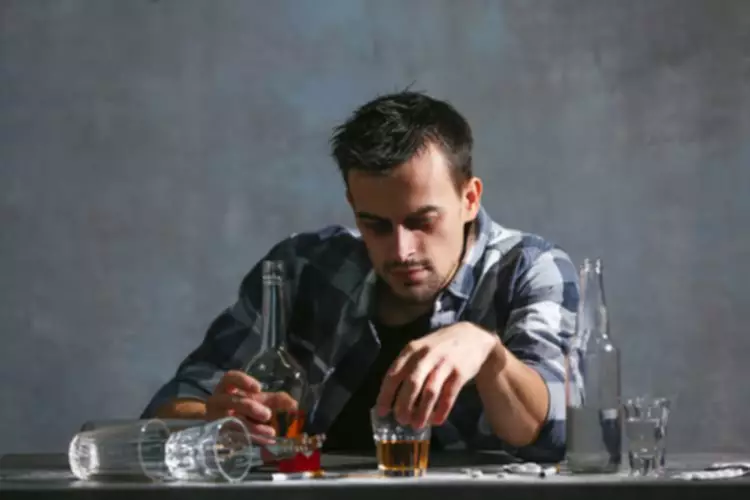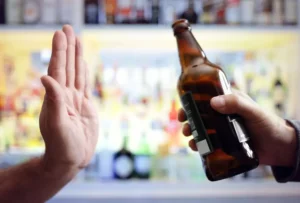
Recognizing the importance of professional help, knowing the progression of symptoms, and being aware of the risks and complications are all crucial steps toward a successful recovery. We will outline each step in the recovery journey from alcohol withdrawal over time in this section—from day one through beyond a month—underscoring both expected struggles and progress during each part of this timeline. Understanding what lies ahead not only helps set appropriate expectations, but also equips individuals with the insight necessary for achieving successful long-term sobriety. Delirium tremens, often referred to as DTs, represent some of the drug addiction most extreme withdrawal symptoms a person can experience, marked by confusion and changes in mental state. The death rate for those suffering from DTs lies between 1% and 4%, but without timely treatment, up to 15% of these episodes could result in fatality.
Why You Feel Depressed After Drinking and How to Handle It
If you begin to notice any unwanted side effects — physical or emotional — while drinking, it may be best to call it a night. By following safe drinking guidelines, you can help reduce your risk for depression as well as other hangover symptoms. Taking some time for productive relaxation can also help ease feelings of depression.
The Process of Alcohol Rehabilitation: Understanding Treatment Methods and Approaches
- Once you’ve identified this need, the next step is choosing the right detox setting to ensure a safe and effective recovery.
- The intensity of symptoms experienced during alcohol withdrawal is determined by the degree of alcohol dependence, an individual’s medical history, and any additional substance use.
- While oxidative stress has been hypothesised, its role was not definitive, as conflicting studies have been reported.
- It’s about identifying the signs of addiction and understanding the health risks involved.
- Inpatient rehab costs vary widely due to factors like treatment complexity, stay duration, and location.
- Though depression is experienced by many, it can often go undiagnosed and untreated.
This causes oxidative stress (an imbalance between helpful antioxidants and harmful free radicals that can lead to disease), marked by excess toxins in the body. More severe withdrawal symptoms may also include fever, convulsions, and delirium tremens (DTs). DTs can cause confusion, panic, and hallucinations (seeing, hearing, or feeling things that aren’t real).
Additional reasons you might feel depressed when you quit drinking:
- They can help you understand what to expect and help you come up with a safe plan.
- Antidepressants, interestingly, have just a slight influence on ethanol use 192,195.
- There is a clinical term for experiencing depression after quitting alcohol and it’s called alcohol-induced depressive disorder (AIDD).
Paramount Recovery Centers, situated in Massachusetts, stands as a leading option for those seeking treatment for alcohol withdrawal. The does alcohol make depression worse center provides an atmosphere that encourages clients to freely express their apprehensions regarding the journey toward recovery. Extended use of alcohol followed by its cessation can result in nutritional deficits that compromise general health and increase the likelihood for continued consumption or abuse of alcohol. Medical professionals are integral in addressing symptoms as they emerge and equipping patients for a positive outcome during the withdrawal period. Acknowledging these hazards is key to securing a safe and successful detoxification from alcohol. Recognizing these potential risks is essential in delivering customized care and support for those undergoing the process of withdrawing from alcohol.
Get Help for Loved Ones at Heroin Addiction Rehab
- As such, glycine receptors can be made the targets for pharmacological treatment of alcohol intoxication, as well as addiction, where therapeutic agents that antagonize ethanol action on glycine receptors could be developed 32.
- You can take these medications by mouth, or your doctor may give you a longer-acting version of one of these drugs by IV in the hospital.
- Healthcare providers can adjust medications based on how you respond and ensure your safety.
- This impaired coordination was found to be related to the volume of the anterior superior vermis 43.
- They may be more noticeable when you wake up with less alcohol in your blood.
People with alcohol use disorder should be monitored by a medical professional when withdrawing from alcohol. Moderate to heavy drinkers can also benefit from medical supervision in the acute withdrawal stage. When someone drinks alcohol for a prolonged period of time and then stops, the body reacts to its absence. This is alcohol withdrawal, and it causes uncomfortable physical and emotional symptoms.
- As Matt Shetler, I bring a heartfelt commitment to changing lives in the field of behavioral health, supported by my extensive experience at The River Source.
- Over time, with proper care and support, your brain can return to a more balanced state.
- When you stop drinking, your brain needs time to adjust to the absence of alcohol.
- Go to the nearest emergency room or call 911 (or your local emergency service number) if you or a loved one has any concerning symptoms of alcohol withdrawal.
On the other hand, more severe symptoms can involve tremors, seizures, hallucinations, and disorientation. In rare cases, individuals may experience delirium tremens, a serious condition that can be life-threatening. It’s important to undergo detox under medical supervision to manage these symptoms safely. Regular alcohol consumption can lead to physical dependence as the body adapts to alcohol intake. Over time, alcohol affects the brain’s neurotransmitter systems, leading to feelings of calmness when someone drinks. When alcohol is removed, the brain’s neurotransmitters, which have adapted to functioning with regular alcohol, suddenly become disregulated, leading to withdrawal symptoms.

Symptoms of alcohol withdrawal typically improve within five days, though a small number of patients may have prolonged symptoms lasting weeks. Benzodiazepinesare often the first treatment doctors suggest for alcohol withdrawal. If you drink heavily for weeks, months, or years, you may have unwanted physical and mental symptoms when you try to stop. Addiction recovery is a personalized process influenced by the type of addiction, individual factors, and support levels, involving detox, rehabilitation, and long-term maintenance, with timelines ranging from weeks to years. Detoxing from alcohol typically takes several days to a few weeks, with symptoms peaking in the first few days and gradually easing, while ongoing support, healthy habits, and professional care can ensure a safer and more effective recovery. In the long-term, quitting alcohol can have significant benefits for mental well-being.


Managing the symptoms of PAWS often involves a combination of medical support and lifestyle adjustments. It’s recommended to offset depression during withdrawal by using substance-free ways to feel happier, such as spending time outdoors, exercising, taking naps, and engaging in supportive activities with trustworthy individuals. The duration of your withdrawal symptoms depends on the substance you used, along with the length and intensity of your addiction—typically, just a few days, but weeks or months in some cases. As with anxiety and depression, fatigue is common and normal for people withdrawing from drugs and alcohol.

